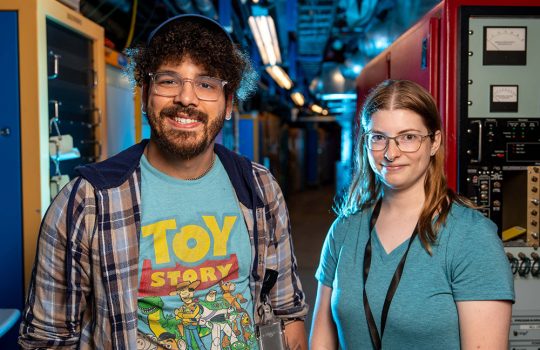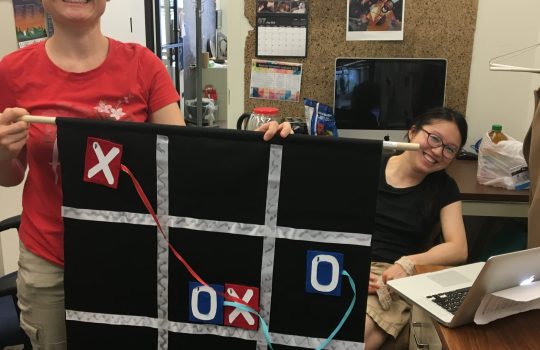Sunday visitors to the Department of Energy’s Fermi National Accelerator Laboratory will soon be able to take their science questions straight to the experts. Beginning on Sunday afternoon, September 3, two Fermilab physicists will be on hand in the laboratory’s Wilson Hall each Sunday from 1:00 to 3:00 p.m. to talk with visitors, answer questions and explain everything from the Higgs boson and the Big Bang to how a particle accelerator works.
“We’ll even try to help with their kids’ science homework,” said Fermilab physicist Peter Garbincius. Garbincius, a Batavia resident, organized the “Ask a Scientist” program to help Fermilab visitors understand the world-class science that goes on in their neighborhood, and to strengthen relationships between Fermilab and community residents.
More than 50 Fermilab physicists responded to Garbincius’s call for “Ask a Scientist” volunteers at the laboratory. Many said they welcomed the opportunity to help make the work they do at Fermilab more understandable to neighbors and other visitors. Fermilab, one of two high-energy physics laboratories in the nation, operates the world’s highest-energy particle accelerator. Physicists from 36 states and many foreign countries study high-energy proton-antiproton collisions at the Tevatron, in order to explore the fundamental structure of matter at the smallest scale.
Each year, tens of thousands of visitors come to Fermilab’s open site to learn about science, to attend concerts and lectures, to hike and bike on the laboratory’s trails, or to join in the laboratory’s annual Prairie Harvest. Garbincius and his colleagues hope that “Ask a Scientist” will make the laboratory more understandable.
“Ultimately, Fermilab’s future requires the continuing support of our neighboring communities,” Garbincius said. “Our goal with ‘Ask a Scientist’ is to answer people’s questions about why we’re here and what we’re doing. Or about any other science subjects.”
Now, about those homework problems?
Fermilab is a Department of Energy national laboratory operated under contract by Universities Research Association, Inc.



